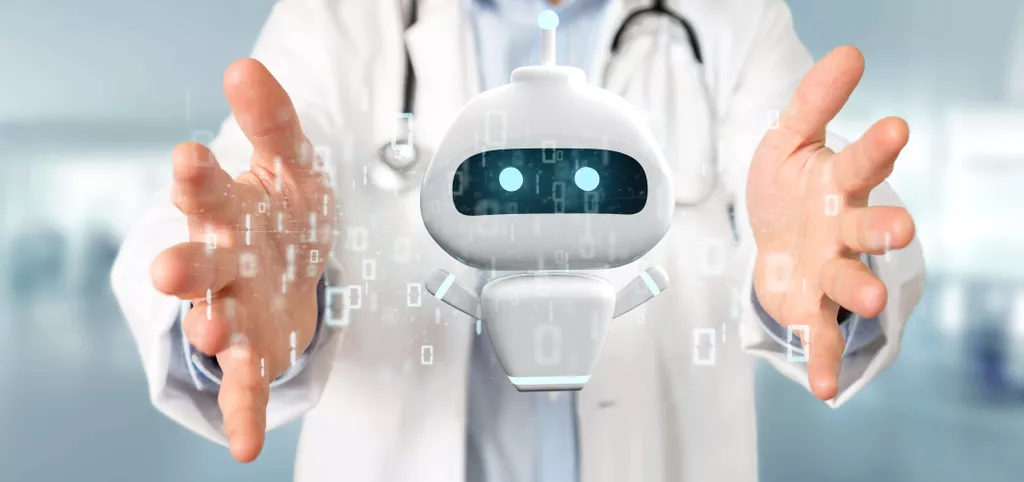
To increase the generalizability of the efficacy and feasibility of AI chatbots, future studies need to test their use in low-income countries or low-resource settings and with children and adolescents. The increased mobile connectivity and internet use in low-income countries [38] offer the potential to implement AI chatbot–based health behavior interventions. The use of AI chatbots can tackle the challenges faced by the health systems in low-income countries, such as the lack of experts, limited health infrastructure in rural areas, and poor health access [39]. Similarly, with the rise in the use of smartphones and latest digital technologies among adolescents [40], AI chatbots offer the opportunity to deliver engaging behavioral health interventions to them. The chatbots that targeted healthy lifestyles (3/8, 38%) offered feedback on behaviors (HLCC and Ida [32]) and reinforced optimism to change behaviors through planning and imagining change (NAO [5] and Ida [32]).
Healthcare chatbots use AI to help patients manage their health and wellness. These chatbots can provide personalized recommendations, track fitness goals, and provide educational content. Additionally, healthcare chatbots can metadialog.com be used to schedule appointments and check-ups with doctors. With the ability to provide instant responses to patient questions, chatbots can offer timely and accurate information, enhancing patient education and engagement.
Mental Health Chatbots:
Liji practiced as a full-time consultant in obstetrics/gynecology in a private hospital for a few years following her graduation. She has counseled hundreds of patients facing issues from pregnancy-related problems and infertility, and has been in charge of over 2,000 deliveries, striving always to achieve a normal delivery rather than operative. Moreover, training is essential for AI to succeed, which entails the collection of new information as new scenarios arise. However, this may involve the passing on of private data, medical or financial, to the chatbot, which stores it somewhere in the digital world. Also, if the chatbot has to answer a flood of questions, it may be confused and start to give garbled answers.
- Overall, 20% (3/15) of studies reported that the AI platforms offered a nonjudgmental safe space for users to share detailed and sensitive information [5,26,29].
- Burnout is a growing concern in the healthcare industry, with many clinicians experiencing symptoms such as emotional exhaustion and reduced job satisfaction.
- A number of these individuals require support after hospitalization or treatment periods.
- The chatbot can also provide reminders to the patient when it is time to refill their prescription.
- This would increase physicians’ confidence when identifying cancer types, as even highly trained individuals may not always agree on the diagnosis [52].
- Technology never tires out, so it makes sense chatbots can simulate empathy when taught to.
For all the tech-world promises of robot pets and AI psychotherapists, the idea of a caring chatbot still feels destabilizing — maybe even dangerous. Nobody thinks ChatGPT actually cares, any more than they think it’s actually smart. But if our current, broken healthcare system makes it impossible for humans to take care of one another, maybe fake taking-care will save real lives. An artificially intelligent assistant may not be more human than human, but maybe it’ll be more humane.
How a now-retracted study got published in the first place, leading to a $3.8 million NIH grant
They are conversationalists that run on the rules of machine learning and development with AI technology. TS2 SPACE provides telecommunications services by using the global satellite constellations. We offer you all possibilities of using satellites to send data and voice, as well as appropriate data encryption.
Chatbots are integrated into the medical facility database to extract information about suitable physicians, available slots, clinics, and pharmacies working days. Don’t miss out on the opportunity to see how Generative AI chatbots can revolutionize your customer support and boost your company’s efficiency. REVE Chat is an omnichannel customer communication platform that offers AI-powered chatbot, live chat, video chat, co-browsing, etc. We leverage Azure Cosmos DB to implement a multi-model, globally distributed, elastic NoSQL database on the cloud.
How AI is used to enhance Healthcare Chatbots
All these figures forewarn of a world that may be mourning on the quality of care in the future. While one might think that the existing doctors and nurses can fill some gaps, their overworked condition at all levels is clear. A 2018 study has revealed that burned out physicians are more likely to suffer from anxiety and depression, making them predisposed to committing errors and negligence. The revolution in medicine is further expected to increase the workload for medical practitioners and make them dangerously stressed out.
Each electronic message adds minutes of work to a clinician’s already busy schedule, contributing to longer working hours and increased after-hours work. The sheer volume of patient inquiries can be overwhelming, leading to delayed responses and, in some cases, unanswered messages. This added workload has been linked to higher levels of burnout among healthcare professionals, with many reporting symptoms such as emotional exhaustion, depersonalization, and reduced job satisfaction. AI chatbots can also facilitate communication between healthcare professionals and patients, leading to improved coordination.
Data hacking
That is where healthcare chatbots provided the initial treatment guidance to those who feared being infected with the virus. Many who could be treated at home were provided information to treat them accordingly. Healthcare chatbots are important, and their significance is self-explanatory in many regards.
What are medical chatbots?
Medical chatbots are AI-powered conversational solutions that help patients, insurance companies, and healthcare providers easily connect with each other. These bots can also play a critical role in making relevant healthcare information accessible to the right stakeholders, at the right time.
Apparently, the experience offered by traditional voice recognition systems is static and disconnected. However, with healthcare conversational AI solutions, ‘empathy’ is the operative word. The customer asks questions, healthcare conversational chatbots comprehend it, and direct them to the right answer—all while leveraging their ability to emulate human thought and compassion.
Primary Categories of Medical Chatbots
Users often ask questions that are repetitive, and any human would get fed up in no time. However, a medical chatbot built for specific purposes would always provide the relevant information and ensure that the user gets the latest and correct information. Chatbots have been proven to handle these issues effectively and value privacy as well.
How AI Is Good For Modern Business Decision-Making – Forbes
How AI Is Good For Modern Business Decision-Making.
Posted: Tue, 06 Jun 2023 10:00:00 GMT [source]
Accenture predicts that the US healthcare industry can save $150 billion a year by 2026 if it adopts AI applications. Given so, how global savings would look like is something we leave to the imagination. With so many patients unable to see their doctors in person, chatbots have become a safer, more convenient way to interact with a variety of medical professionals. A June 2020 New York Times article, for example, detailed one Houston native’s reliance on the Replika chatbot as an antidote to loneliness and mental stress placed on her while she remained quarantined at home. According to the Times, half a million people downloaded Replika during the month of April alone, at the height of pandemic. The pandemic has marked a distinct turning point for the app, originally launched in 2015 by San Francisco start-up Luka to make restaurant recommendations.
What is AI technology in healthcare?
AI in healthcare is an umbrella term to describe the application of machine learning (ML) algorithms and other cognitive technologies in medical settings. In the simplest sense, AI is when computers and other machines mimic human cognition, and are capable of learning, thinking, and making decisions or taking actions.
